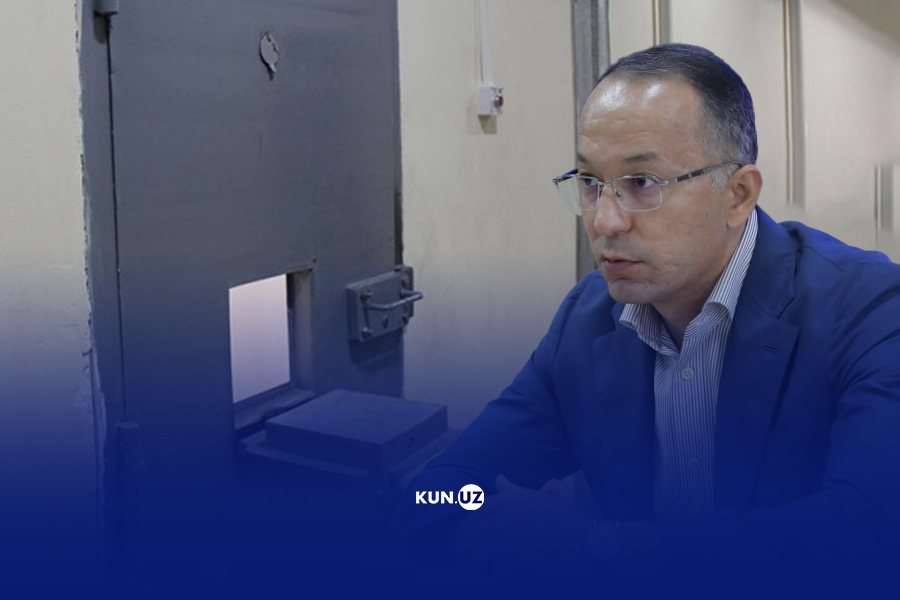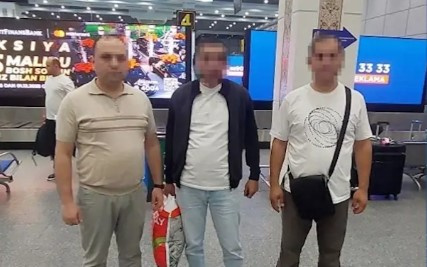Prosecutorial misconduct: Woman illegally detained in Almazar district for over 80 days
Despite constitutional guarantees that no one may be detained without legal grounds, a woman suspected of fraud has been held in Almazar district without justification for at least 80 days due to the negligence of the district prosecutor. The Ombudsman, tasked with protecting human rights, has limited its response to forwarding complaints to the investigative authorities.

Photo: KUN.UZ
Uzbekistan’s legislation clearly outlines the grounds and durations for detention. The Constitution explicitly states that detention is permissible only by court order and that no one may be held without a court ruling for more than 48 hours. Yet, these regulations are being blatantly violated by the Almazar district prosecutor’s office and its internal affairs investigation unit, where a woman suspected of fraud has been detained without legal basis for at least 80 days.
Note: This article does not address whether the woman is guilty of the alleged crime, as that is for the courts to decide.
The case unraveled
The situation began when criminal cases were opened against Nozima Davronova in two jurisdictions, leading to detention orders. In Angren, a court ruling on April 22, 2024, issued an in-absentia detention order against Davronova as a precautionary measure in a criminal case handled by the Angren city Internal Affairs Department (IAD). Similarly, in Almazar, another in-absentia detention order was issued by the district court for criminal cases on May 11, 2024, related to a separate case.
Davronova, suspected of fraud, was arrested on July 28, 2024, and handed over to the Angren investigation authorities. That case concluded, and on December 26, 2024, the Ohangaron district court sentenced her to 2 years and 6 months of corrective labor. This verdict was upheld by the Tashkent Regional Court’s criminal cases panel on May 14, 2025, with no appeals or protests filed, leaving Davronova’s portion of the ruling uncontested.
A ruling that “calmed” Almazar
The Ohangaron district court’s December 26, 2024, ruling sentenced Davronova to 2 years and 6 months of corrective labor, with enforcement and oversight assigned to the Angren city IAD, where she is permanently registered. The in-absentia detention order was lifted, but the Almazar district court’s May 11, 2024, in-absentia detention order for another criminal case remained in effect.
According to Umid Rasulberdiev, Deputy Chairman of the Tashkent Regional Court and head of its criminal cases panel, Davronova was transferred to the Almazar district IAD’s custody on December 26, 2024, at which point the Almazar court’s in-absentia detention order took effect. Based on this, her detention period should have ended on March 26, 2025. (Her lawyers argue the detention should have ended on December 26, 2024, when the Ohangaron court issued its ruling.) Since the detention period was not extended by investigative authorities, Davronova has been held without legal basis for over 80 days as of June 14, 2025, the publication date of this article.
The prosecutor’s falsehood
Davronova’s lawyers have filed over 40 complaints with various authorities, asserting the unlawfulness of her detention and demanding her immediate release. However, most complaints were redirected to the Almazar prosecutor or investigator. In response to one such complaint, a letter dated May 20, 2025, signed by Almazar district prosecutor Ahror Akhunov, claimed that Davronova was detained due to a criminal case under investigation by the Chirchiq city IAD, with multiple charges and an in-absentia detention order, and that she was wanted.
However, no criminal case or in-absentia detention order exists against Davronova in Chirchiq, as confirmed by official letters from the Chirchiq city IAD and the Chirchiq city court for criminal cases. This false information was also cited in a March 29, 2025, letter from A. Itolmasov, deputy head of Almazar district IAD’s investigation department, to prosecutor Akhunov. It appears that Akhunov and his staff believed this misinformation and used it to dismiss the lawyers’ complaints.
This reflects a troubling level of negligence in handling an individual’s fate.
The investigator’s excuse: “The court didn’t allow it”
Kun.uz visited the Almazar district prosecutor’s office for clarification. The deputy prosecutor explained that the investigation was repeatedly suspended because the appellate court handling the Angren case did not permit investigative actions, preventing Davronova’s transfer for further investigation.
However, a notable contradiction emerged: despite claiming that “the court didn’t allow investigations,” the Almazar IAD investigator continued investigative actions against Davronova. A case file page reviewed by a Kun.uz reporter shows that on January 15, 2025 – 22 days after the Ohangaron court’s ruling – Davronova was interrogated at the Almazar IAD investigation department, with a formal protocol recorded.
“No permission was needed”
Kun.uz sought further clarification from the Tashkent Regional Court. Umid Rasulberdiev explained that the appellate court did not review Davronova’s portion of the Angren ruling. Thus, from December 26, 2024, she was under the Almazar IAD’s custody for the second detention order. He noted that legal procedures for involving detainees in investigations are clearly defined, and the investigator was authorized to conduct procedural actions without needing court permission.
The Ombudsman as a “postman”
Complaints about Davronova’s unlawful detention were sent to the General Prosecutor’s Office, the Ministry of Internal Affairs, and the Ombudsman. The Ombudsman, responsible for reviewing complaints from detainees and those deprived of liberty, appears not to have thoroughly examined the case. Despite the complaint addressing unlawful detention, it was labeled as dissatisfaction with the investigation process and forwarded to the General Prosecutor’s Office.
“Don’t ask me for the ruling”
Eshqobil Dusanov, head of the central investigation detention facility under the Ministry of Internal Affairs, responded tersely to the lawyers’ complaint about Davronova’s unlawful detention, advising them to contact the investigative or judicial authorities handling her case for a copy of the detention ruling.
Under Article 53 of the law “On Detention During Criminal Proceedings,” a detainee must be released based on the decision of an investigator, prosecutor, or court, or upon the expiration of the detention period specified in the Criminal Procedure Code. Article 54 mandates that the head of a detention facility notify the relevant authority or prosecutor in writing 12 hours before the end of a temporary detention period and 7 days before the end of a custodial detention period. If no decision is received to release, extend, or apply a new detention measure after these periods expire, the prosecutor overseeing legal compliance or the detention facility head must release the detainee immediately.
Davronova’s detention period has exceeded not just days but months. Yet, Dusanov neither notified the relevant authorities 7 days before the detention period’s end nor released her when no legal basis was provided.
Will anyone be held accountable?
Davronova’s detention for over 80 days, based not on law but on the “gut feelings” of investigators, prosecutors, or their deputies, is no minor issue. It concerns an individual’s freedom and the inviolability of their personal life. Those responsible for this violation, through action or inaction, must face legal accountability. Otherwise, such injustices may recur in others’ lives.
Related News

16:36 / 14.06.2025
Man on Interpol's wanted list for fraud detained at Tashkent Airport

12:37 / 14.06.2025
Humans to file countersuit against Octobank over contract violations

13:35 / 13.06.2025
Bukhara governor orders building demolition “with the people inside”

09:45 / 13.06.2025



